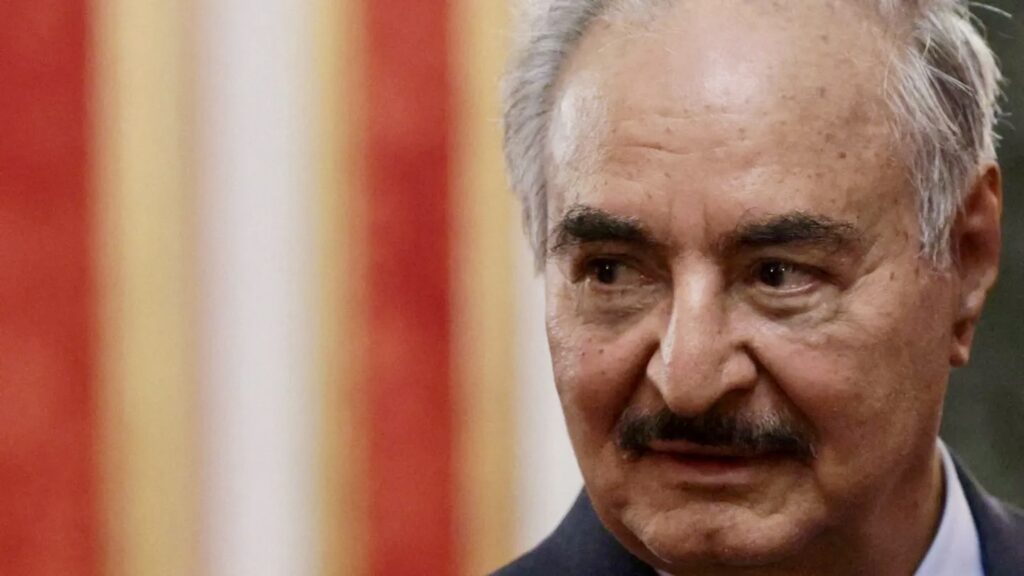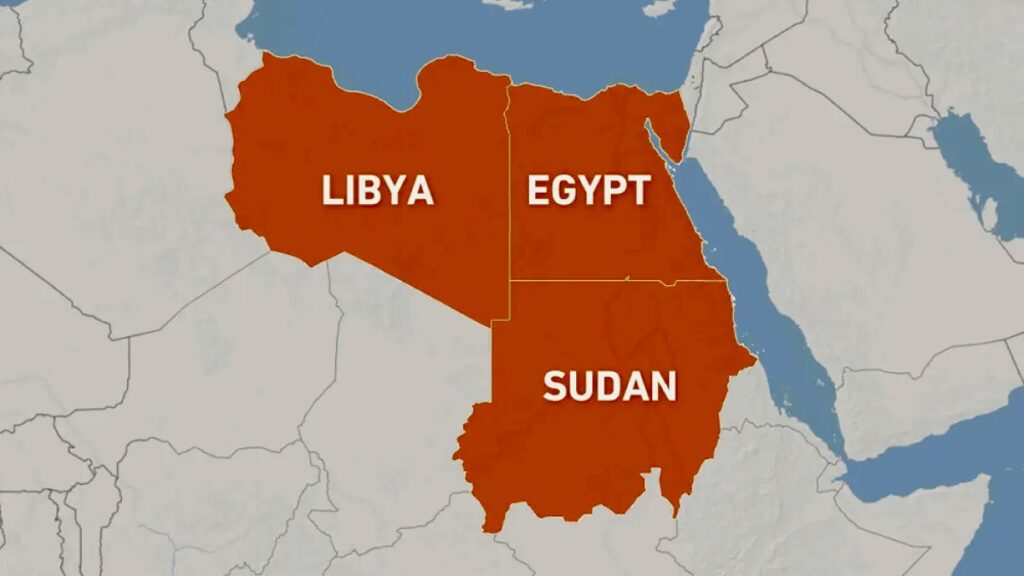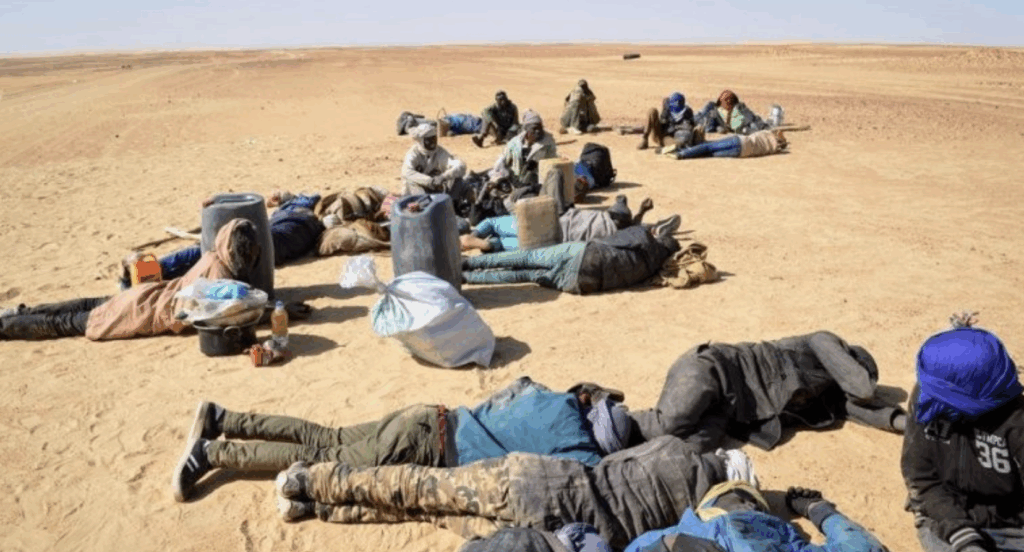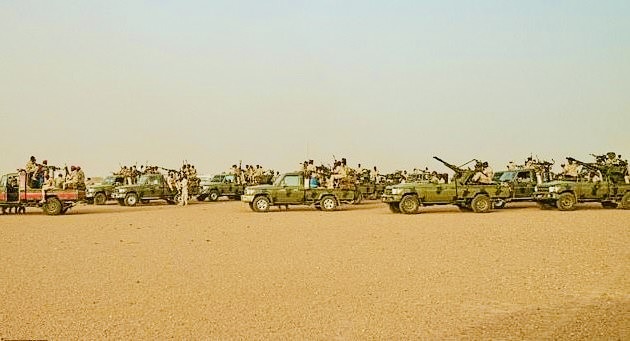Sudan’s war spreads to the borders of Libya and Egypt
12 June 2025
A new front in Sudan’s civil war has erupted on the desert border between Sudan, Libya, and Egypt for the first time since the outbreak of armed conflict in Khartoum, raising fears of direct regional confrontations in the region.
Confrontations began to take shape following the Sudanese army’s accusation that the Libyan army, led by Khalifa Haftar, had infiltrated the Sudanese border and attacked its forces, a claim denied by the latter.
Tensions flared in the region last week after a joint force of armed movements allied with the Sudanese army attacked a patrol of the Subul al-Salam Battalion, affiliated with Khalifa Haftar’s forces. A fierce battle ensued following the arrival of Libyan reinforcements from Kufra, resulting in casualties on both sides.

Accusation and denial
The Sudanese army spokesman said in a press statement on Tuesday that the attack by the Rapid Support Forces was backed by Khalifa Haftar’s Libyan National Army (the Salafist Battalion), which he considered “a reprehensible and unprecedented gesture and a flagrant violation of international law”.
The statement indicated that the attack targeted “our border points in the border triangle between Sudan, Egypt, and Libya with the aim of seizing the area,” adding that “the direct intervention of Khalifa Haftar’s forces alongside the Rapid Support Forces in the war is a blatant aggression against Sudan, its land, and its people, and an extension of the international and regional conspiracy against our country.”
In a statement, the Libyan army leader Khalifa Haftar denied what he described as allegations of an attack on Sudanese territory, describing it as a blatant attempt to export Sudan’s internal crisis and create a virtual external enemy.
“Allegations of seizing Sudanese territory and siding with one side of the conflict are a rehashed narrative that bears no relation to reality,” Haftar’s statement read. “We have never been a threat to our neighbours, but rather we are committed to stability, border control, and combating terrorism and migration through strict and close security coordination with our neighbours.”

The triangle area
In the middle of this week, Rapid Support Forces (RSF) launched attacks against the army-allied joint force, and on Tuesday, RSF fighters announced their control of the Jebel al-Uwaynat area on the border with Libya.
On Wednesday, the Rapid Support Forces announced in a statement that they had taken control of the strategic “Triangle” area, which constitutes a pivotal meeting point between Sudan, Libya, and Egypt. This significant step will have repercussions along several combat fronts, particularly in the northern desert.
The critically strategic area, rarely maintained by a heavy Sudanese military presence, was reportedly defended by a small detachment, which was either scattered or captured during the RSF advance, the Sudan War Monitor reported.
The “Triangle” region enjoys a vital geographic location and serves as an economic and strategic border crossing between three countries, a pivotal hub for trade and transportation between North and East Africa, and contains rich natural resources of oil, gas, and minerals, according to a statement from the Rapid Support Forces.
“The opening of our forces to the northern desert axis represents a strategic shift in securing the borders and protecting the country, especially after the repeated attacks by mercenary movements and militias supported by the Port Sudan Authority,” the RSF statement claimed.

Intersections in the area
The strategic nature of the border triangle and its importance to three countries—Sudan, Libya, and Egypt—impose an exceptional reality on the conflict surrounding it, amid contradictory alliances between the military actors in the three countries.
The Egyptian regime is allied with the Libyan National Army (LNA) led by Khalifa Haftar while simultaneously supporting the Sudanese army at the expense of the Rapid Support Forces (RSF). Meanwhile, Egypt and the United Arab Emirates are supporting Haftar militarily in his conflict with other Libyan factions, complicating the situation in the border triangle.
“Egypt will not compromise its national security, regardless of the calculations, as the incursion of the Rapid Support Forces into the border triangle represents a direct threat to it,” said retired Sudanese army officer Dr Khalil Muhammad.
Dr Khalil Muhammad points out that Khalifa Haftar’s interventions in the Sudanese war and his support for the Rapid Support Forces are not new but rather longstanding. The retired officer does not believe the conflict in the border triangle area will escalate but rather represents a diversion tactic against the army. “The purpose of these attacks is an attempt to distract the Sudanese army on distant fronts to achieve military objectives deep within the country. This is a well-known tactic in wars, and I do not believe the Sudanese Armed Forces will be oblivious to it.”
The retired military expert does not rule out the possibility that the Rapid Support Forces’ objective in the desert battles is to secure their land supply lines after the army successfully struck Nyala Airport, threatening the continuation of air supplies.
The clashes have hampered the movement of people fleeing the war in Sudan to Libya, with smugglers raising the price of tickets from the border triangle to the Libyan town of Kufra from 150,000 Egyptian pounds to 800,000 Egyptian pounds, exacerbating the humanitarian situation, according to a source requesting anonymity.



